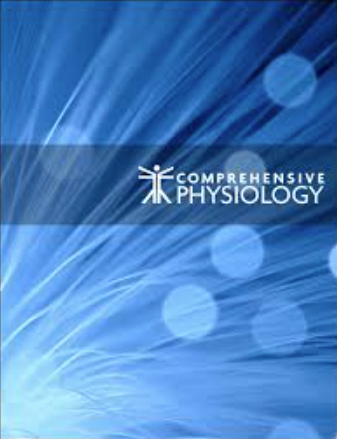Jeremy W Prokop, Vladislav Jdanov, Lane Savage, Michele Morris, Neil Lamb, Elizabeth VanSickle, Cynthia L Stenger, Surender Rajasekaran, Caleb P Bupp
求助PDF
{"title":"Computational and Experimental Analysis of Genetic Variants.","authors":"Jeremy W Prokop, Vladislav Jdanov, Lane Savage, Michele Morris, Neil Lamb, Elizabeth VanSickle, Cynthia L Stenger, Surender Rajasekaran, Caleb P Bupp","doi":"10.1002/cphy.c210012","DOIUrl":null,"url":null,"abstract":"<p><p>Genomics has grown exponentially over the last decade. Common variants are associated with physiological changes through statistical strategies such as Genome-Wide Association Studies (GWAS) and quantitative trail loci (QTL). Rare variants are associated with diseases through extensive filtering tools, including population genomics and trio-based sequencing (parents and probands). However, the genomic associations require follow-up analyses to narrow causal variants, identify genes that are influenced, and to determine the physiological changes. Large quantities of data exist that can be used to connect variants to gene changes, cell types, protein pathways, clinical phenotypes, and animal models that establish physiological genomics. This data combined with bioinformatics including evolutionary analysis, structural insights, and gene regulation can yield testable hypotheses for mechanisms of genomic variants. Molecular biology, biochemistry, cell culture, CRISPR editing, and animal models can test the hypotheses to give molecular variant mechanisms. Variant characterizations can be a significant component of educating future professionals at the undergraduate, graduate, or medical training programs through teaching the basic concepts and terminology of genetics while learning independent research hypothesis design. This article goes through the computational and experimental analysis strategies of variant characterization and provides examples of these tools applied in publications. © 2022 American Physiological Society. Compr Physiol 12:3303-3336, 2022.</p>","PeriodicalId":10573,"journal":{"name":"Comprehensive Physiology","volume":"12 2","pages":"3303-3336"},"PeriodicalIF":4.2000,"publicationDate":"2022-03-29","publicationTypes":"Journal Article","fieldsOfStudy":null,"isOpenAccess":false,"openAccessPdf":"","citationCount":"4","resultStr":null,"platform":"Semanticscholar","paperid":null,"PeriodicalName":"Comprehensive Physiology","FirstCategoryId":"3","ListUrlMain":"https://doi.org/10.1002/cphy.c210012","RegionNum":2,"RegionCategory":"医学","ArticlePicture":[],"TitleCN":null,"AbstractTextCN":null,"PMCID":null,"EPubDate":"","PubModel":"","JCR":"Q1","JCRName":"PHYSIOLOGY","Score":null,"Total":0}
引用次数: 4
引用
批量引用
Abstract
Genomics has grown exponentially over the last decade. Common variants are associated with physiological changes through statistical strategies such as Genome-Wide Association Studies (GWAS) and quantitative trail loci (QTL). Rare variants are associated with diseases through extensive filtering tools, including population genomics and trio-based sequencing (parents and probands). However, the genomic associations require follow-up analyses to narrow causal variants, identify genes that are influenced, and to determine the physiological changes. Large quantities of data exist that can be used to connect variants to gene changes, cell types, protein pathways, clinical phenotypes, and animal models that establish physiological genomics. This data combined with bioinformatics including evolutionary analysis, structural insights, and gene regulation can yield testable hypotheses for mechanisms of genomic variants. Molecular biology, biochemistry, cell culture, CRISPR editing, and animal models can test the hypotheses to give molecular variant mechanisms. Variant characterizations can be a significant component of educating future professionals at the undergraduate, graduate, or medical training programs through teaching the basic concepts and terminology of genetics while learning independent research hypothesis design. This article goes through the computational and experimental analysis strategies of variant characterization and provides examples of these tools applied in publications. © 2022 American Physiological Society. Compr Physiol 12:3303-3336, 2022.

 求助内容:
求助内容: 应助结果提醒方式:
应助结果提醒方式:


